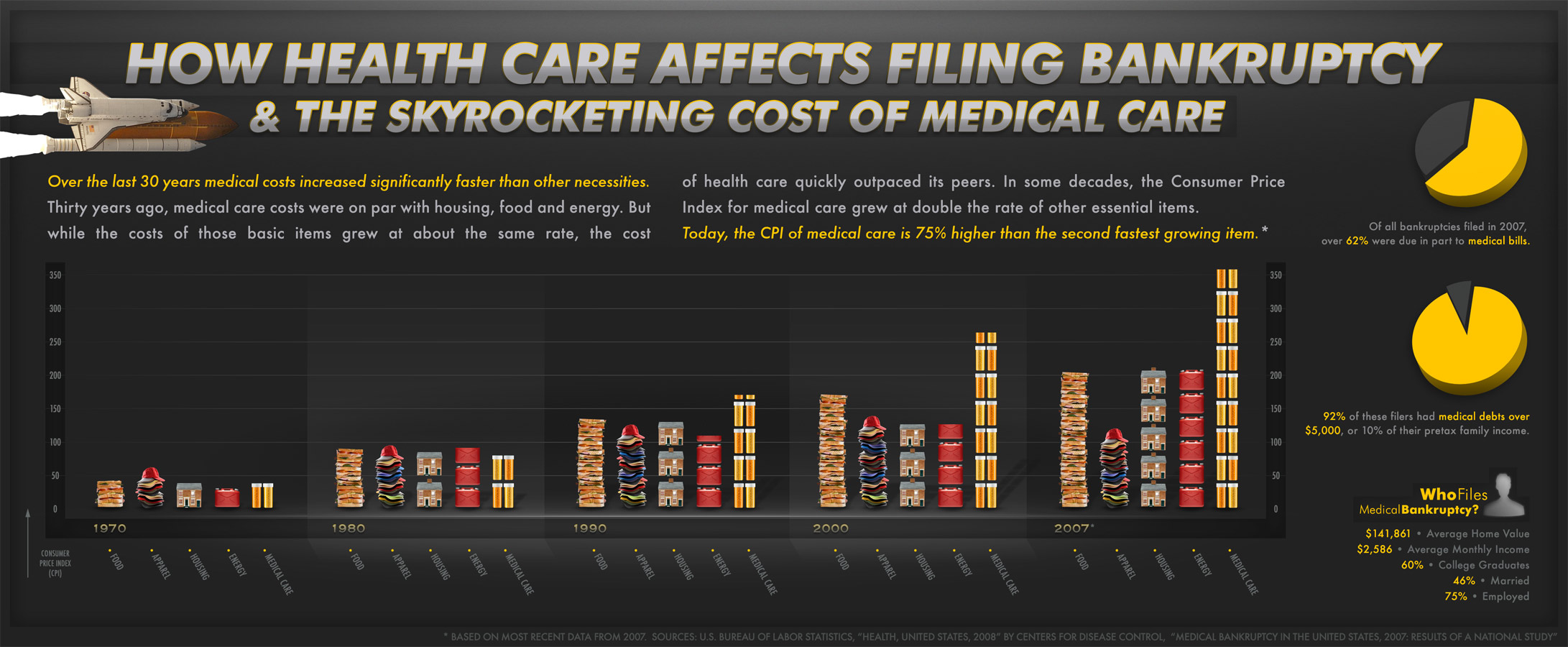File Bankruptcy to Save Your Retirement? Why It’s Actually a Smart Choice
With the economy continuing its slow recovery, research data suggests that seniors are filing bankruptcy in higher numbers than ever before. According to a recent article from TheStreet.com, approximately 25.3 percent of all bankruptcies filed in 2011 involved individuals who were aged 55 or older. The cause? Living expenses, including medical expenses, are increasing while their income is decreasing. Even though government programs like Social Security and Medicare are intended to bridge the gap, seniors often find themselves coming up short and racking up debt as a result.
New Bankruptcy Law Explained
On October 17, 2005, new bankruptcy law went into effect, changing the process of filing for bankruptcy throughout the United States. This new shift in law requires additional steps to be taken by the attorney and the debtor but has been geared toward benefiting the debtor with the end result. The following details explain the changes in the law and how they will affect anyone considering bankruptcy.
What Is A Chapter 7 Bankruptcy?
During these uncertain times, many hard-working Americans find themselves overwhelmed by financial problems. It can happen to the best of people, no matter what tax bracket they qualify for. If you or anyone you know find yourself in these circumstances, it is crucial that all options of relief are considered. However, most people find that filing for Chapter 7 bankruptcy is the best alternative for financial relief.
How It Works
The Benefits of Bankruptcy
After the current bankruptcy law went into effect in 2005, many people were left with the impression that bankruptcy relief was no longer available or too difficult to obtain. Nothing could be further from the truth.
Four Questions To Ask a Bankruptcy Lawyer Before Signing
Bankruptcy law has gone through many changes in recent years, which makes a good lawyer more important than ever for a successful bankruptcy case. It is also important to be fully informed about what a prospective lawyer can offer and what to expect from them. If you are talking to a bankruptcy lawyer, here are four questions to ask them before signing a contract:
Who Files Chapter 13 Bankruptcy?
In October 2005, the laws which govern Chapter 13 bankruptcy changed. One of the more significant ways the law changed dealt with the eligibility requirements for filing for Chapter 7 and Chapter 13 bankruptcy.
What Happens If I Don’t Make My Chapter 13 Payment?
No one plans on dramatic financial changes, but they happen. When changes do arise to an individual in Chapter 13 bankruptcy, they might be misled into believing there is no other option than sticking to their schedule of set monthly payments. But they might be surprised to find that Chapter 13 bankruptcy has a great deal of flexibility.
Stop Repossessions with Bankruptcy: How Your Vehicle Can Survive The “Repo Man”
In these difficult times, with thousands of people losing their jobs every month, it can be hard to keep up with all the expenses, especially when the bills keep coming. Falling behind on payments for a vehicle happens to the best of us. Sometimes life deals you adversity like an unexpected medical bill, a work related layoff or some other situation that no one plans for in the budget. You don’t have the money for it, but if you put off the car payment, you can get the bill paid, and hopefully can catch up on the car payment next month.
Does My Chapter 13 Payment Change With My Income?
The decision to file for bankruptcy is not one to take lightly. With the multiple bankruptcy plans available and the changes to bankruptcy law that occurred in 2005, it is important to be an informed about options from various scenarios. If you are considering filing for bankruptcy but have concerns about what may happen should your income change, here is an overview of the facts.
Chapter 13 is called the wage earner’s plan and allows people with a regular income to develop a plan for repayment of debt. Even people who are self-employed can file for Chapter 13.
Bankruptcy for Small Businesses
The entrepreneurial spirit is one of the touchstones of American culture that has made our country so strong. The willingness of driven individuals to step out and risk their financial stability for the sake of a business they believe in has been a catalyst of our country’s growth. However, a recent study by the University of Nevada showed that one in seven bankruptcies are filed by individuals tying to cope with the failure of a small business.
